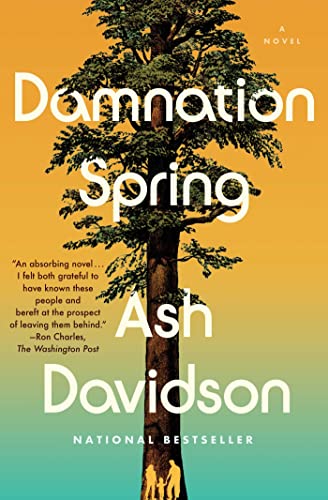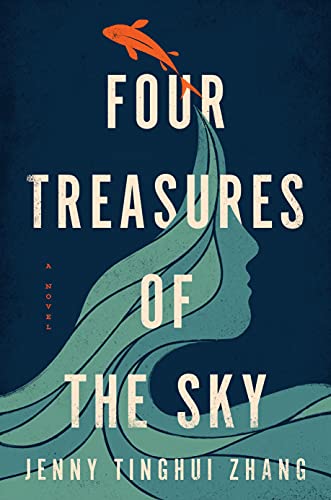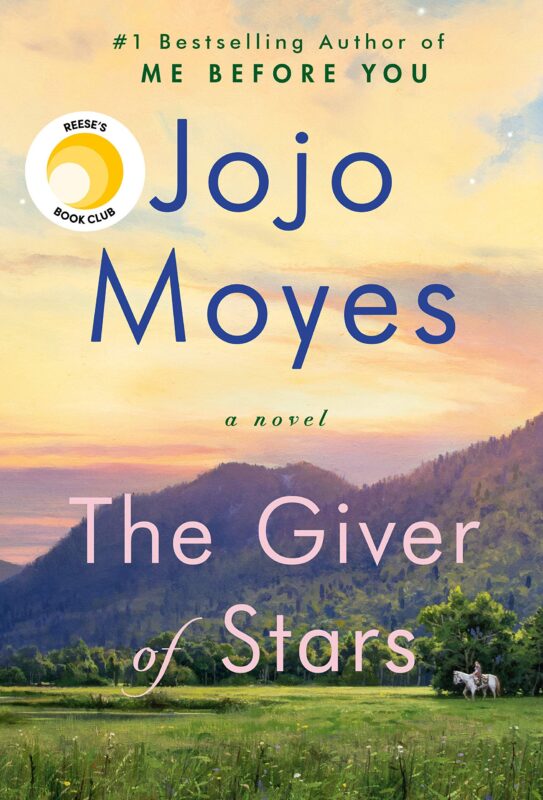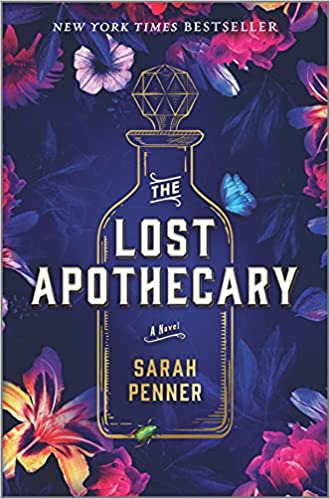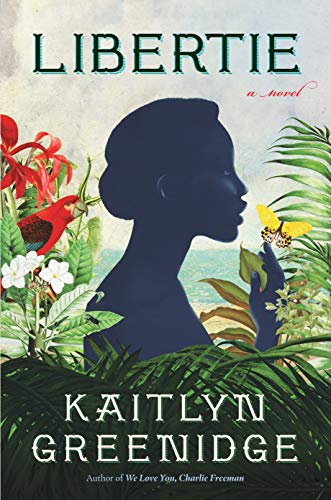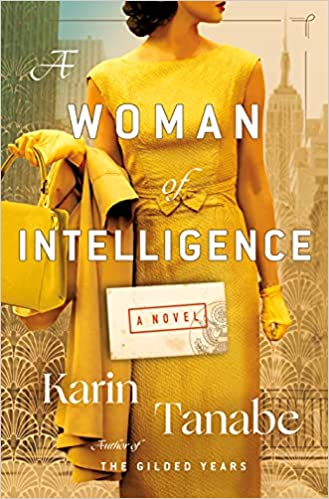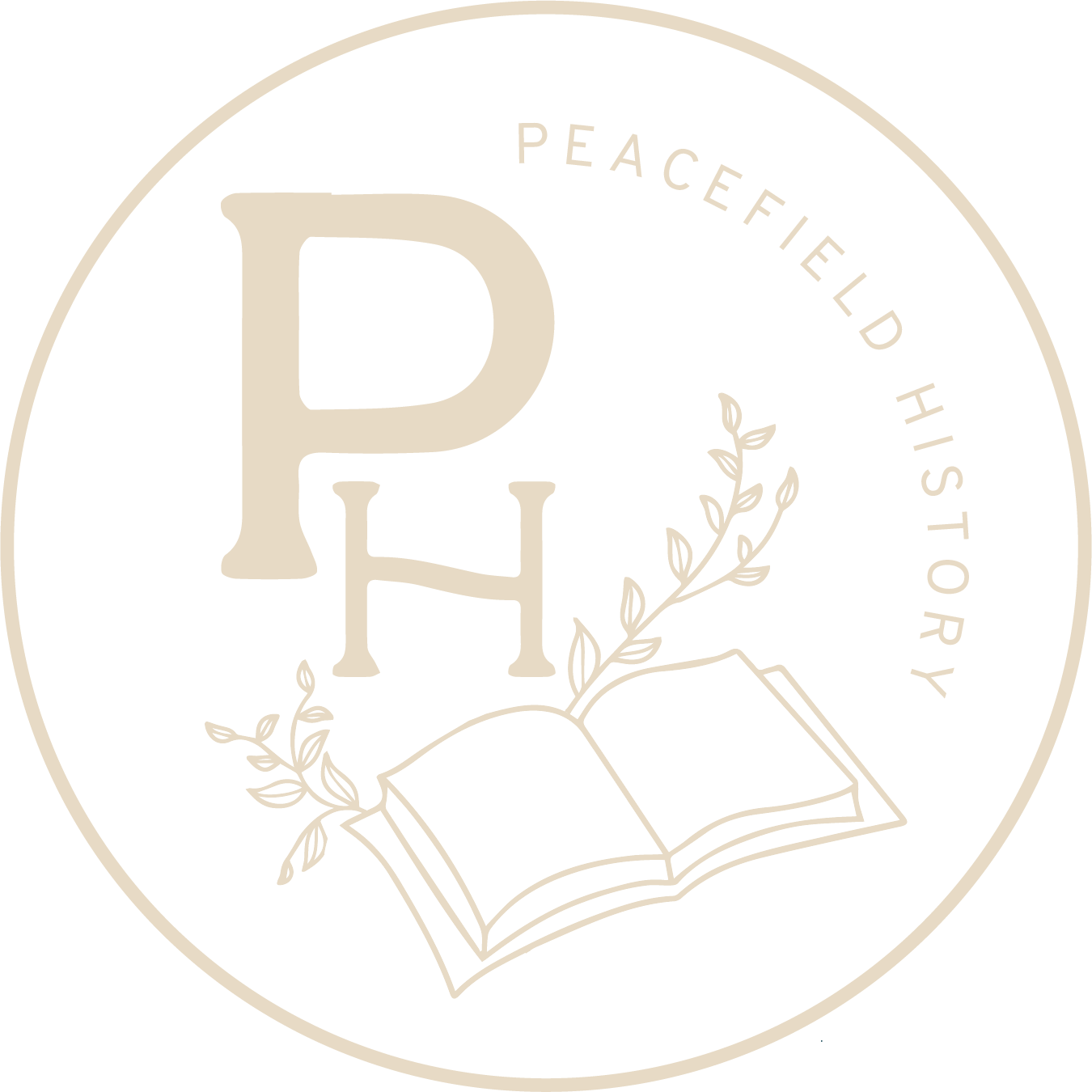Damnation Spring
Series: Reads and Reviews, Reads and Reviews - July 2022
Genre: Historical Fiction - Adult
Tag: Recently Read
Although one could never say that there is one way to write historical fiction, this book certainly does it correctly. The core of this story is a group of families living along the California coast in the 1970s. The men work in the logging industry while the women raise the families. At first the story seems to focus just on the families, however, the early environmental movement, and the use of DDT gradually work their way into the plot in a way that feels natural and real. If you've been a bit perplexed by the popularity of Where the Crawdads Sing, you might prefer this book instead.
More info →Four Treasures of the Sky: A Novel
Series: Reads and Reviews, Reads and Reviews - May 2022
Genre: Historical Fiction - Adult
Tag: Recently Read
Four Treasures of the Sky takes on the history of Chinese immigration during the era of the Exclusion Act. Daiyu is abandoned by her grandparents at a very young age after her parents are kidnapped for their political activism. Teetering on the edge of existence, Daiyu's life is largely controlled by her gender and her race, and those issues remain constant as she smuggled to the U.S. and then migrates to Idaho. This is not an uplifting story - but unlike many historical fiction novels, this book reflects the reality of the history during this time. In many ways, it seemed like an adult companion to Prairie Lotus.
More info →The Giver of Stars
Given what I knew of this author, I wasn't sure if I would enjoy this book. It turned out that I REALLY enjoyed this book. It was set during one of my favorite times periods in U.S. History - The Great Depression. The story centered around a traveling library that was created as part of the WPA and the women who ran that library. It represented the perfect combination of history and fiction. There was just enough history to reflect the reality of the time period, including, union organization (and union-busting), the WPA, and a heap of the social history of Kentuckian life of that time. Also, the story was sentimental and engaging without the hokeyness that often accompanies this type of fiction. One of my favorite books of the year thus far.
More info →The Lost Apothecary
Series: Reads and Reviews, Reads and Reviews - December 2021
Genre: Historical Fiction - Adult
When Caroline Parcewell discovers that her husband has cheated on her after 10 years of marriage, she decided to go on their anniversary trip alone - to London. In an attempt to explore the historical researcher side of her life that she had left behind years before, she decides to go along on a little historical adventure that involves finding objects that have appeared from the historical muck of the city. Her discovery leads her towards a path of intriguing historical research and self-discovery.
Although it's probably technically classified as historical fiction, half of the book takes place within a historical era and half of the book takes place in the modern day. This book is probably the closest I might get to reading a "romance" novel. It's actually about the rejection of romance, and finding one's self - independent of any romantic partner. (I'm not sure what that says about me.) My only criticism of this book is that it is a very "tidy" story. Caroline is able to uncover all the secrets through her research. I wish historical research worked this way, but often times, that's just not the case. At one point she finds an abandoned location that had not been touch for over 100 years - in London! Given the value of London real estate these days, I found that particular plot point rather unlikely. However, if you have dreams of spending your days immersed in historical research, this book is a cozy read.
More info →Libertie: A Novel
Series: Reads and Reviews, Reads and Reviews - July 2021
Genre: Historical Fiction - Adult
Adult Historical Fiction
This book takes place in the post-Civil War era. Libertie is born in Brooklyn, and she is raised by her mother, who is a physician. (This portion of the story is based on actual history. There was a black woman doctor practicing in Brooklyn during this time, and she did have a daughter.) Libertie is trained by her mother to become a doctor also, although her enthusiasm towards the practice is lacking. The darkness off Libertie's skin compared with the lightness of her mother's complicates the story also, as Libertie questions whether she also wants to practice medicine.
Although the topics of Reconstruction and the issues surrounding that era are a part of the story, they don't take center stage. Really, this book is more about the trauma of the boundaries that surround those who are legally free, and how it can manifest itself in many forms. The end of slavery didn't mean automatic happiness and "liberty" for Black people. Colorism, race, feminism... all these ideas push and pull the characters. I really enjoyed reading a book from the perspective of free Black people immediately after the Civil War, as it is not one that is commonly written. The way that language is used in this text renders it almost surreal and dreamlike. An imaginative, distinct, and absorbing read sure to land on many best books of the year list.
More info →A Woman of Intelligence
Series: Reads and Reviews, Reads and Reviews - July 2021
Genre: Historical Fiction - Adult
Spies, Communists, the FBI, the McCarthy era, New York City, and an unhappy marriage... The main character is Katharina Edgeworth. She worked for the UN during WWII as a translator, and now she has settled down as a wife and mother. She is miserable in that role and wallowing in self-pity when she is recruited by the FBI to spy on a Communist organization centered in NYC.
This story is much more so about a woman that feels trapped in her marriage and motherhood. The history is there, however, it often reads like background noise to her personal story. She doesn’t really question the role she’s playing for the FBI, or whether Communism is really a threat. Really, she’s just excited to have a life outside of her apartment and away from her boys. I really wish the author had focused more on the history, as the setup for that history was really engaging. Instead, much of the book focuses on Katharina’s internal monologue.
If you’re looking for a book about motherhood and all of its trials, this is definitely a book for you. However, don’t pick up this book expecting to learn more about the McCarthy era.
More info →